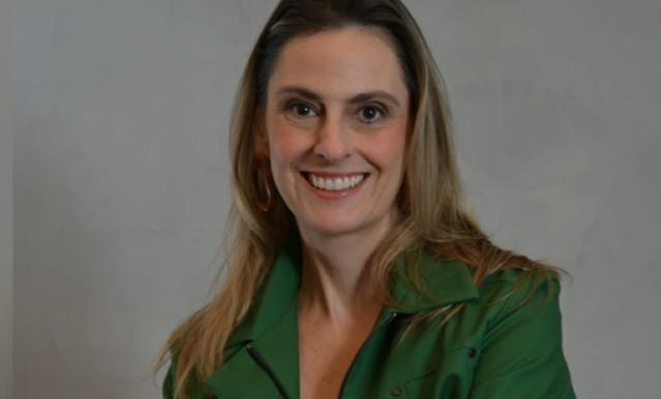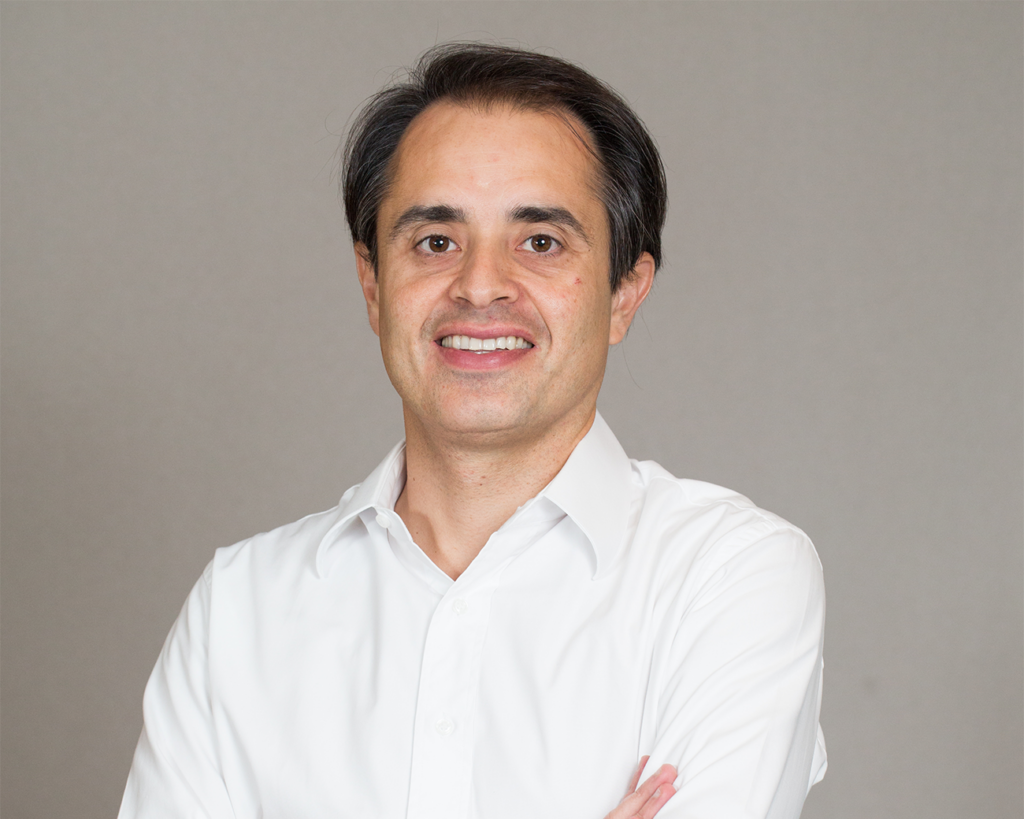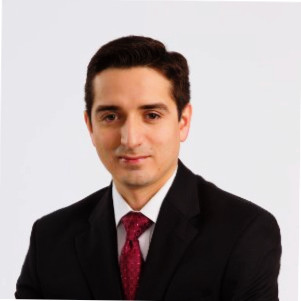Member Profiles
An Interview with Jorge Karadima, Sembrador Capital
26 January 2012

LAVCA recently spoke with Jorge Karadima, CEO of Chile-based Sembrador Capital, about the risks and rewards of investing in technology innovation in agribusiness.
 LAVCA: Please give us some background on Sembrador. How many funds do you operate, and what is your geographic and sector focus? What are your assets under management?
LAVCA: Please give us some background on Sembrador. How many funds do you operate, and what is your geographic and sector focus? What are your assets under management?
Karadima: Sembrador Capital de Riesgo S.A. was created in 2004. Since then our team has focused on developing innovative agriculture-oriented investments. Today we manage approximately US$60M through two funds (Fondo de Inversiones Crecimiento Agrícola and Fondo de Inversiones AgroDesarrollo) with a total of 11 portfolio companies distributed
throughout Chile, from Valle del Elqui (IV region) to Temuco (IX region).
We invest in plantations that cultivate fruits that are either relatively new to Chilean agriculture or that have innovative technology designed for development in Chile. To date, we produce chestnuts, lemons, oranges, table grapes, wine grapes, truffles, kiwis, blueberries, walnuts, clementines and avocados.
LAVCA: Sembrador Capital de Riesgo was created by fruit company Subsole and financial services firm Larrain Vial – what opportunity did Subsole and LV see, and how has Sembrador capitalized on that opportunity?
Karadima: They saw an opportunity for Chile as a high quality fruit exporting country. Due to its geography, Chile has privileged weather conditions that make it suitable for the growing of a wide variety of orchards. Another important matter is that the majority of the countries that import Chilean fruit are located in the northern hemisphere. Chile
can provide its clients with counter-season produce so they can enjoy year-round fruit supply.
LAVCA: How much do you invest in each of the projects?
Karadima: For the moment, the funds that we manage are aimed at small or medium enterprises. Our investments have ranged from as little as USD$800,000 up to as much as USD$3M. The size of then investment depends on the developing project and its capital needs
LAVCA: What is your most recent investment? What unique actions are you taking to add value to the company from an operational standpoint?
Karadima: At Sembrador, we aim to create greater value in our portfolio by investing in a series of products that have innovative characteristics in the agriculture landscape. Our
approach considers both the development of new products that are seen as niche produce worldwide and products that are well known in the rest of the world but have not been properly developed in Chile. This is the case with our most recent investment, a truffle farm which will be located in Mulchen (IX region, Chile).
The entrepreneur had done extensive studies on the growth of truffles in Chile and had managed to stabilize the fungi in our soil, which differs from other truffle growing countries, even though the climates are similar. When we began investing with him, he knew the technology well, but didn’t have the expertise to grow and manage an industrial size farm. Sembrador was able to guide him and connect him with the needed partners. We are looking to build a 50-100 hectare farm and start harvesting the truffles in 2015-2016.
LAVCA: What do you feel is the greatest challenge for agribusiness entrepreneurs in Chile today?
Karadima: The biggest challenge for agribusiness entrepreneurs in Chile is the lack of capital to make investments. Usually these entrepreneurs have the knowledge to develop great innovative agricultural projects, but they do not possess the means to realize them. Chilean high net worth individuals and companies prefer to invest in more traditional investing areas, where their investments are at lower risk. Today we have fund managing companies, such as Sembrador, whose mission is to shorten the distance that exists between the capital and good innovative management that exist in Chile, resulting in the development of modern agriculture.
LAVCA: FOMIN was one of the first investors in Sembrador. Did the fund also receive investment from Chilean development agency CORFO? How are the expectations of multilaterals or development agencies different from those of other institutional LPs?
Karadima: FOMIN is one of our most important, and one of the first investors in our second fund AgroDesarrollo. FOMIN invested in AgroDesarrollo, managed by Sembrador, after a thorough due diligence. FOMIN also studied our prior fund (Crecimiento Agricola), its operation, as well as our experience in managing and investing it. As in Crecimiento Agrícola, AgroDesarrollo received support from CORFO.
Multilaterals, as well as any investor, are looking for financial returns. However, multilaterals are also usually looking for other returns such as positive social impact, positive environmental development and job generation. AgroDesarrollo was investing in the 2010 earthquake-damaged zone a couple of months after it occurred.
LAVCA: How do you measure social impact?
Karadima: That’s a good question. We’re able to measure our direct impact in regards to job creation. To date, this number is around 2,000 new jobs, though we anticipate the number to grow as our investments mature.
However, we also know that we are having an indirect social impact on the communities in which we work. Forinstance, local entrepreneurs and business owners are developing services to support us, from sleeping quarters to meals to fertilizer supplies. Since these jobs aren’t on our direct payroll, it’s hard to capture the overall economic impact our work is having on these local communities.
We are currently speaking with others in the impact space, such as NESsT, to discuss ways to measure this impact.
LAVCA: Who are your other current LPs? For your next fund, will you target new types of LPs?
Karadima: Asides from FOMIN and CORFO, we count on high net worth individuals to invest in our funds, which are mostly Chilean. We have a lower percentage of foreign private investors. For our next fund we hope to have the support of FOMIN and we will be looking for commitments from national private investors as well as from overseas investors interested on investing in agribusiness in Chile and other Latin-American countries as well. Up until now we have only invested in Chile, but we would like to explore other regional markets, such as Colombia and Peru, which we see as complementary markets to Chile.
LAVCA: What do you see as the greatest opportunity for private investors looking to invest in agribusiness in Latin America?
Karadima: Given the continuous population growth, and therefore an increase in the food demand worldwide, Latin America appears as a continent full of opportunities to invest in the agricultural sector. The variety of climates and environments provide many opportunities for intensive and extensive agriculture, which have not been exploited to their full potential yet. And again, as mentioned earlier, due to its location in the Southern Hemisphere, it has the opportunity to supply the northern hemisphere in the counter-season.
LAVCA: What can you tell us about the exit market in Chile and what you see as the most viable exit strategies for your portfolio companies?
Karadima: We believe there is a sound market in Chile and abroad interested in purchasing the assets we have developed. We think that a leveraged buyout or a management buyout is a likely exit strategy for our assets. To date, we have exited two farms. These have been sold to third party investors or companies that have placed very interesting offers for our assets. Both exits have produced IRRs above 16%. We have also sold shares of some of our companies to our managing partners. The assets we are currently managing have increasingly become interesting investment opportunities for both national and international investors.
You may be interested in...
-

Luciana Antonini Ribeiro, eB Capital
Executive: Luciana Antonini Ribeiro, Co-Founder and CIO Member Name: eB Capital Year...
-

Cristiano Gioia Lauretti, Kinea Private Equity
Member: Kinea Executive: Cristiano Gioia Lauretti, Head of Private Equity HQ: São...
-

Maria Pia Iannariello, MGM Innova Capital
LAVCA recently spoke with Maria Pia Iannariello, Co-Founder & COO of MGM Innova Capital,...
-

Rafael Ramirez, Portfolio Manager, Alaska Permanent Fund Corporation
LAVCA recently spoke with Rafael Ramirez, Portfolio Manager– Private Equity &...